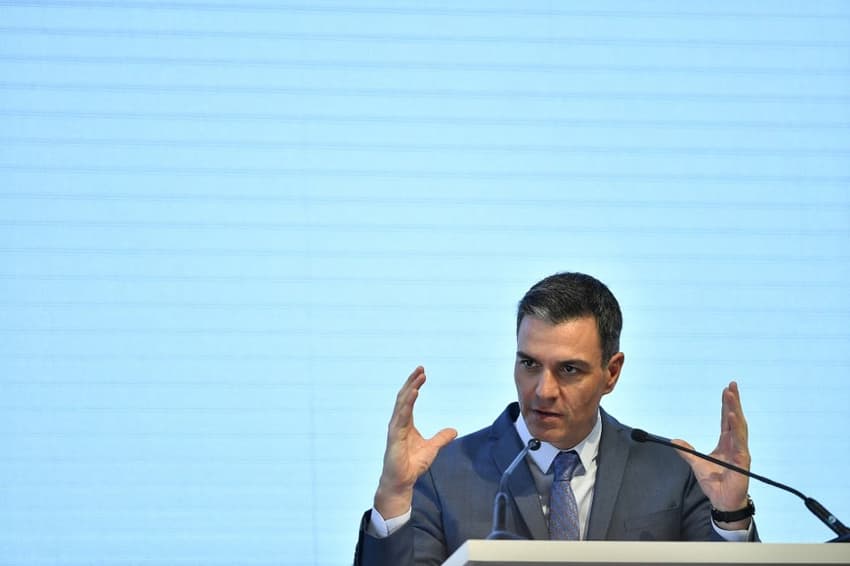Spain to cut electricity tax by half to ease inflation pain

Spain will cut the value-added tax on electricity from 10 percent to five percent to shield consumers from soaring inflation fuelled by Russia's invasion of Ukraine, Prime Minister Pedro Sánchez said Wednesday.
The announcement comes after Sánchez's Socialists were thrashed Sunday in a regional election in Andalusia, a longtime party stronghold.
Sánchez told parliament the VAT reduction, from 10 percent to five percent, would be approved at an extraordinary cabinet meeting on Saturday "to continue to protect citizens from the effects of the war."
His government last year slashed the VAT rate on electricity to 10 percent from 21 percent to ease the impact of electricity price rises on consumers.
The latest tax cut will be part of a package of measures which will be adopted on Saturday to help consumers deal with rising inflation, which hit 8.7 percent in May, its highest level in decades.
The government did not provide further details on what measures will be adopted.
It adopted a first multi-billion euro emergency package to cushion businesses and consumers from soaring energy prices in March.
Labour Minister Yolanda Díaz has proposed slashing the price of monthly public transit passes by 50 percent and offering €300 ($315) to people hit hardest by rising prices.
READ MORE: Spain eyes €300 handouts for most vulnerable and further fuel reductions
"Inflation is hitting families hard. ... The government has acted quickly and decisively, but it is still not enough," she tweeted.
Spain's main opposition conservative Popular Party won Sunday's election in Andalusia in a landslide, capturing 58 seats in the 109-seat regional parliament, its first ever absolute majority in the southern region.
The Socialists won just 30 seats, its worst ever result in Spain's most populous region.
Comments
See Also
The announcement comes after Sánchez's Socialists were thrashed Sunday in a regional election in Andalusia, a longtime party stronghold.
Sánchez told parliament the VAT reduction, from 10 percent to five percent, would be approved at an extraordinary cabinet meeting on Saturday "to continue to protect citizens from the effects of the war."
His government last year slashed the VAT rate on electricity to 10 percent from 21 percent to ease the impact of electricity price rises on consumers.
The latest tax cut will be part of a package of measures which will be adopted on Saturday to help consumers deal with rising inflation, which hit 8.7 percent in May, its highest level in decades.
The government did not provide further details on what measures will be adopted.
It adopted a first multi-billion euro emergency package to cushion businesses and consumers from soaring energy prices in March.
Labour Minister Yolanda Díaz has proposed slashing the price of monthly public transit passes by 50 percent and offering €300 ($315) to people hit hardest by rising prices.
READ MORE: Spain eyes €300 handouts for most vulnerable and further fuel reductions
"Inflation is hitting families hard. ... The government has acted quickly and decisively, but it is still not enough," she tweeted.
Spain's main opposition conservative Popular Party won Sunday's election in Andalusia in a landslide, capturing 58 seats in the 109-seat regional parliament, its first ever absolute majority in the southern region.
The Socialists won just 30 seats, its worst ever result in Spain's most populous region.
Join the conversation in our comments section below. Share your own views and experience and if you have a question or suggestion for our journalists then email us at [email protected].
Please keep comments civil, constructive and on topic – and make sure to read our terms of use before getting involved.
Please log in here to leave a comment.